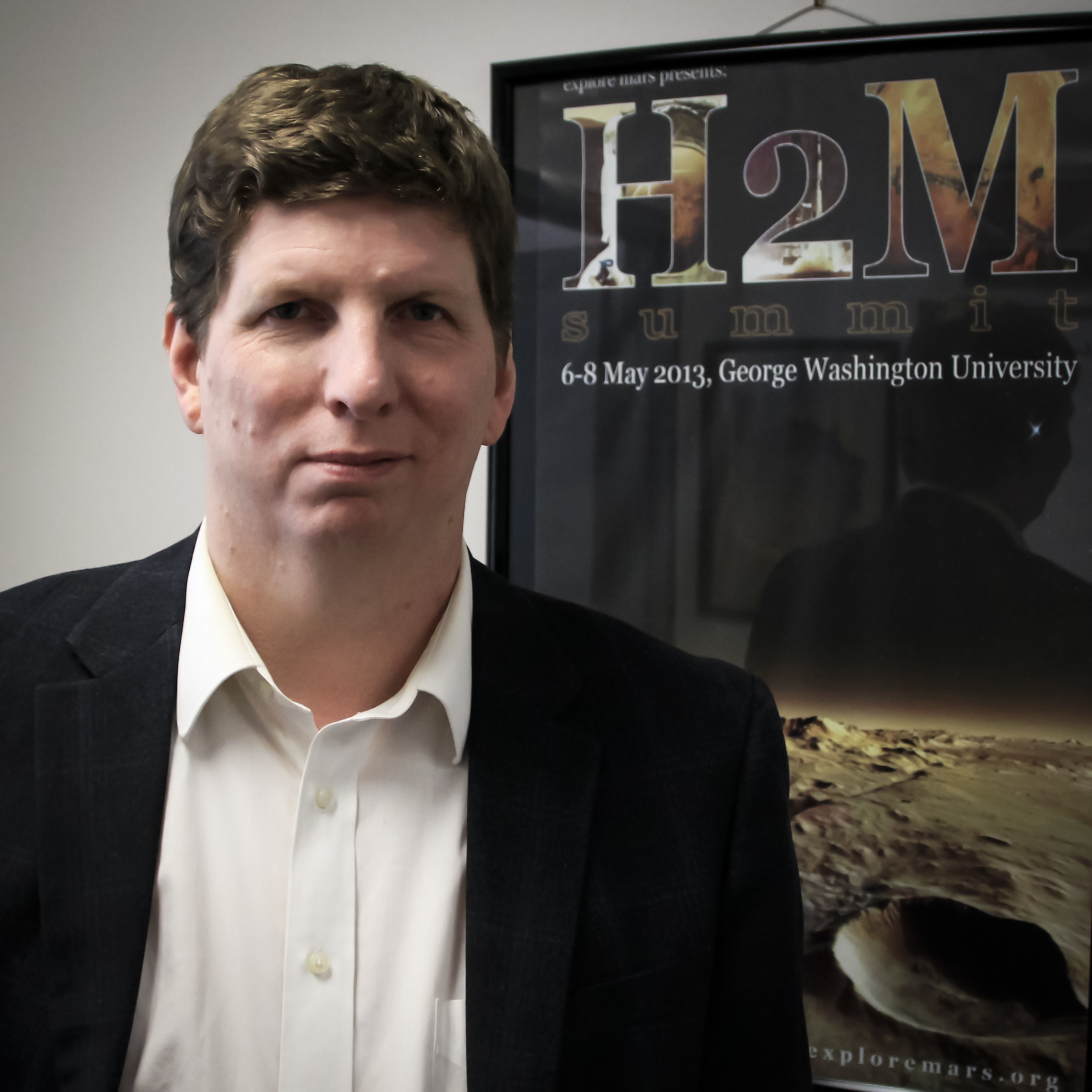National Space Society Blitzes Congress on NASA Budget
When King Harry of Englandfought the French at Agincourt, he was vastly outnumbered by an army that waslargely made up of mercenary forces.
In some regards this issimilar to the recent 2007 Space Budget Blitz. A small band of space advocateswent to Capitol Hill, where as is usually the case, we were vastly outnumberedby high priced lobbyists and political power-players. Although we didn't haveas decisive a victory as King Harry, the 2007 Space Budget Blitz was anunqualified success.
Over two days, the NationalSpace Society (NSS) spoke to more than sixty members of Congress, including newmembers, appropriators, and authorizers, as well as Congressional leadership.This included face to face meetings with Representative Ralph Hall (R-TX) andRepresentative Nick Lampson (D-TX) as well as speaking to staffers from theoffices of Senator Hillary Clinton, Senator Barack Obama, Senator JoeLieberman, and many others.
The NASA Budget
The timing of this eventcouldn't have been any better. The 2008 budget was released the previous weekand the Senate was debatingthe Joint Resolution that cut $500 million from NASA's original 2007 budget. Despite thefact that the Joint Resolution passed the Senate, we were pleased to find thatthere is still a lot of support for NASA in the United States Congress and thatmany members will be pushing hard to make sure that NASA gets at least the 3.1percent increase (over the 2007 budgeted amount) that is included in the recently released 2008budget.
According to BlitzCo-Chairman, Rick Zucker: "It was extremely gratifying to hear of the greatinterest and respect held by many members of Congress for NASA and for spaceexploration and development in general. At the same time, however, our meetingsprovided a unique opportunity to obtain crucial information as to the demandsthat are currently being placed on Congress regarding the allocation of scarceresources among competing interests. The Blitz showed the importance ofmaintaining the lines of communication between the space community and Congressto ensure that adequate funding is appropriated for the Vision for SpaceExploration and other space-related programs."
Fear of the "Gap"
Get the Space.com Newsletter
Breaking space news, the latest updates on rocket launches, skywatching events and more!
One of the concerns that wecontinually heard during these meetings was a growing anxiety aboutthe four-year gap between the retirement of the space suttle fleet and thescheduled operation of the replacementvehicle. It was apparent that a number of Representatives are getting moreuncomfortable with the fact that the United States will be unable to launch humans into orbit for such a longperiod. This fear was compounded by China'srecent launch of an anti-satellite missile. It will be interesting to seeif the apparent Iranianlaunch will even further magnify this Congressional angst over the "gap."
Talking Points
The talking points that wewere promoting included language that discussed the following topics:
- Support amendments to the Joint Resolution that would call for the restoration of the $500 million removed from the original 2007 budget.
- Fully fund NASA to at least the administration's 2008 request of a 3.1 percent increase over the original 2007 budgeted amount.
- Support the Vision for Space Exploration. In the 2005 NASA Authorization Bill, Congress overwhelmingly supported the goals (Moon, Mars, and Beyond) of the Vision for Space Exploration and the spending level that would require.
- Protect and expand opportunities for private industry and entrepreneurship by supporting programs like the Commercial Orbital Transportation Service (COTS) and Centennial Challenges.
- Fund research into space applications for environmentally friendly solutions to Earth's energy needs.
- Formally include NASA in the Competitiveness Initiative.
A New Congress
The recent changeover inCongress presented many challenges. Although both parties boast numeroussupporters of space exploration, we entered these meetings with little or noidea of where most of the new members stood on space exploration issues. As wewere setting up the meetings, many of these offices hadn't even finished hiringstaffers and weren't sure who was going to deal with science and space issues. Despitethese complications, our meetings went very well.
According to NSS ExecutiveDirector, George Whitesides, "The staffers are always impressed by the passionand knowledge of the NSS members visiting Capitol Hill. It was critical thatthe new Congress hear from citizens right at the start that space must be apriority for their coming term."
This activity was just oneof many that NSS and other organizations plan to conduct over the upcomingyear. Only through constant contact with our elected officials can the spaceadvocacy community help guarantee that the Moon and Mars do not get dropped asCongressional priorities. In order to truly have the impact that we desire weneed more people to come out and join us for future trips to Capitol Hill.Don't be shy! Not only can you influence the United States government, but youcan have a LOT of fun doing it. To quote a line from Shakespeare's HENRY V, ifwe succeed in these efforts, we "will be remembered."
Chris Carberry is a BoardMember of the National Space Society and Chairman of the 2007 Budget Blitz.
- VIDEO: NASA's New Spaceship
- IMAGES: Returning to the Moon with Orion and Ares
- NASA Chief: Budget Issues Delay Next Spaceship to 2015
- NASA Spending Plan Reflects White House Policy
- House Budget Proposal Could Delay Shuttle Replacement
NOTE: The views of thisarticle are the author's and do not reflect the policies of the National SpaceSociety.
Visit SPACE.com/Ad Astra Online for morenews, views and scientific inquiry from the National Space Society.
Join our Space Forums to keep talking space on the latest missions, night sky and more! And if you have a news tip, correction or comment, let us know at: community@space.com.

Chris Carberry is the CEO and co-founder of Explore Mars, Inc. (Explore Mars), a 501(c)(3) nonprofit space advocacy. In this role, he has overseen Explore Mars’ annual Humans to Mars Summit, the largest annual conference focused on sending humans to Mars, and has spearheaded dozens of programs, projects, and outreach efforts. Prior to joining Explore Mars, Carberry served as Executive Director of The Mars Society. Carberry has presented oral (and written) testimony to both the United States Senate as well as the United States House of Representatives. He is also the author of over 100 articles that have appeared in publications around the world and has been featured in over 100 national and international television, radio programs and podcasts. Carberry is the author of the 2019 book "Alcohol in Space: Past, Present and Future," which is currently being adapted into documentary film that will be released in 2023. Carberry also has two books scheduled for release: "Scoring Space" (2023) and "A Future Spacefaring Society" (2024).









